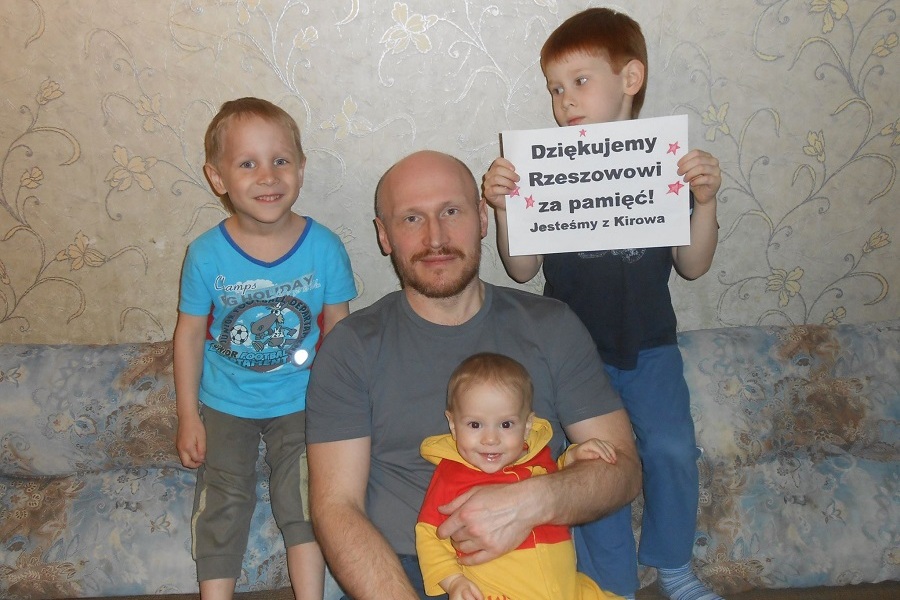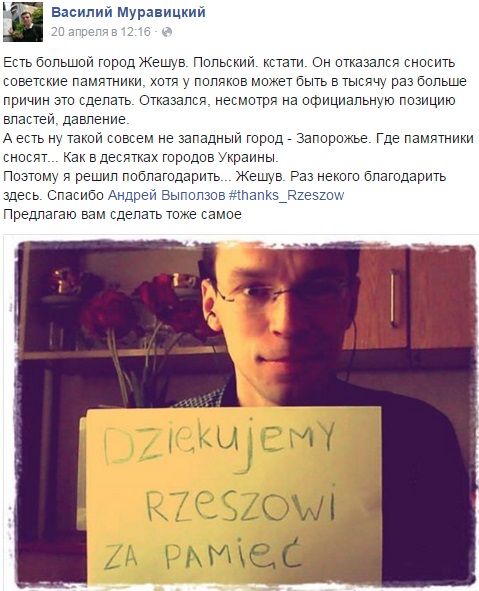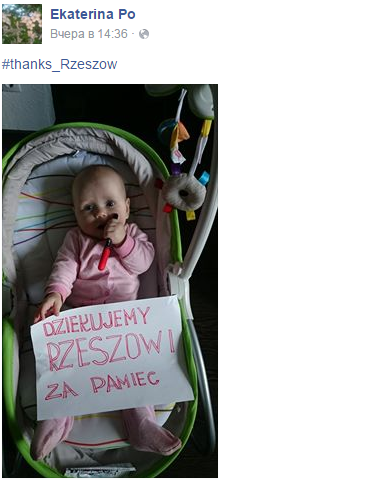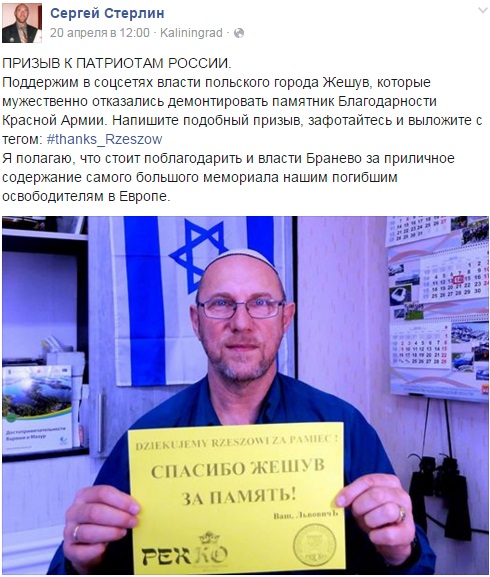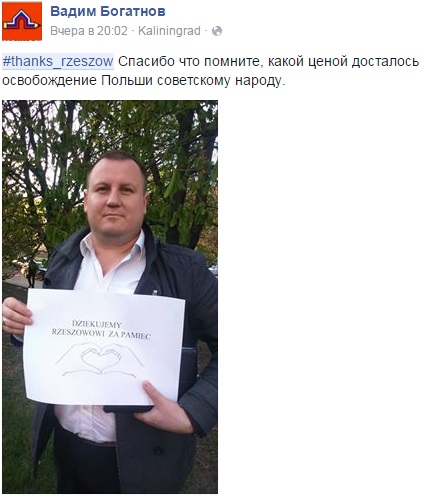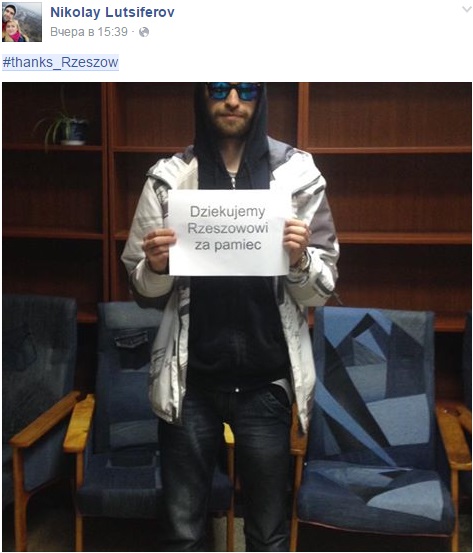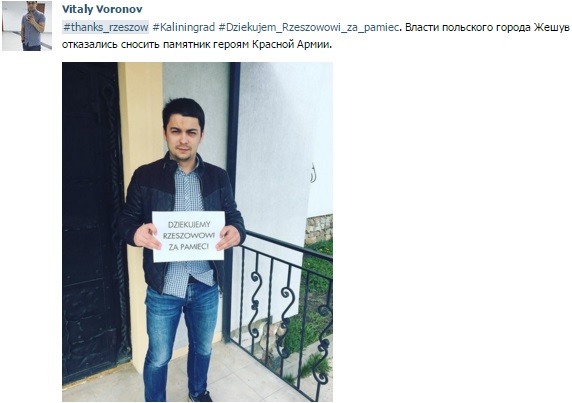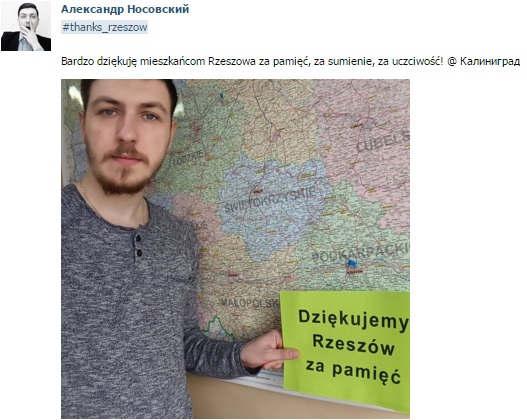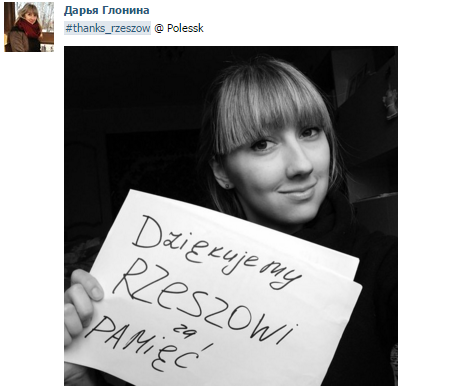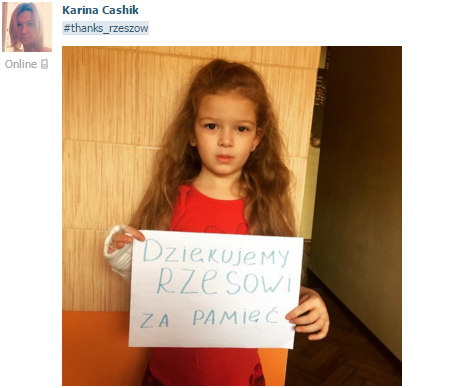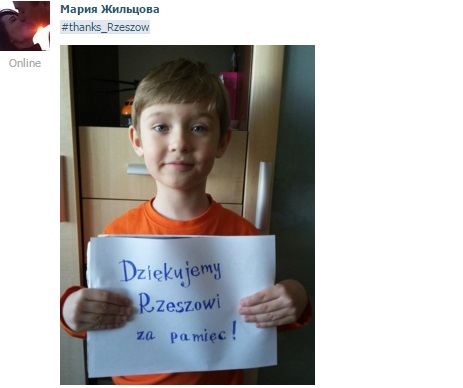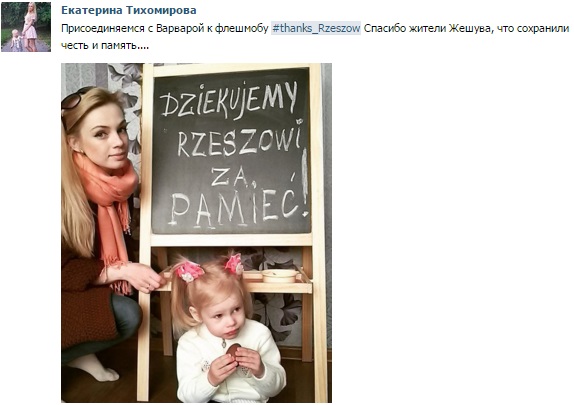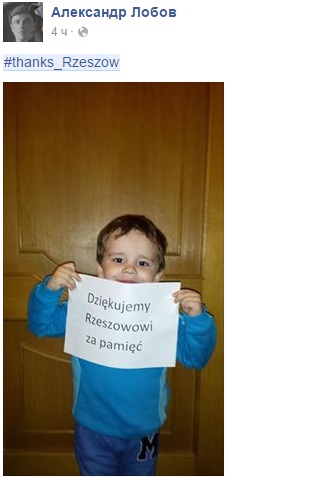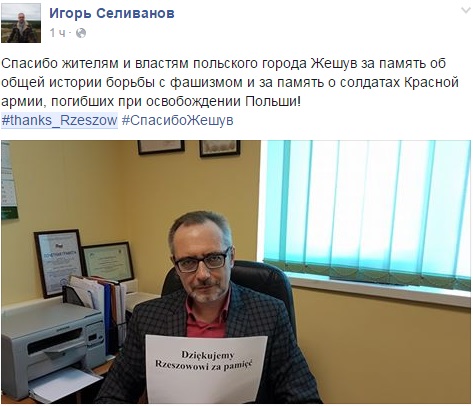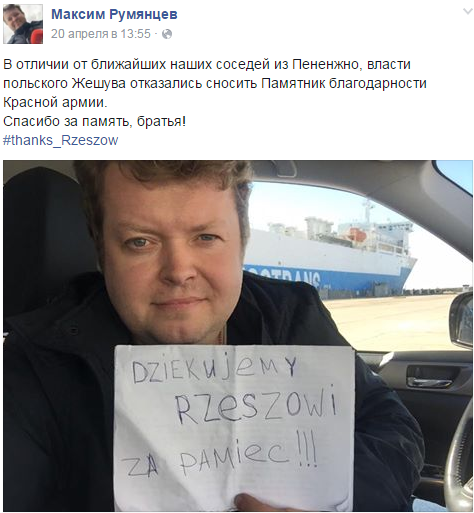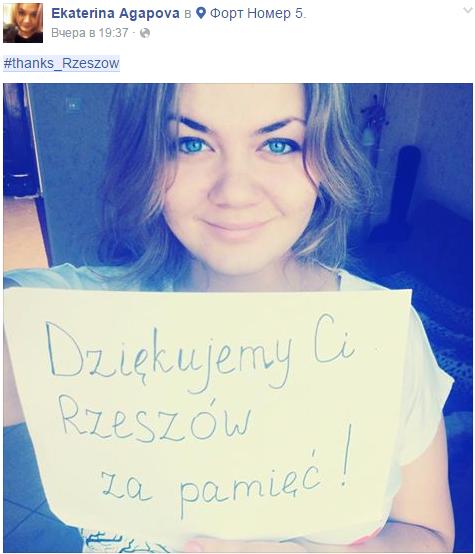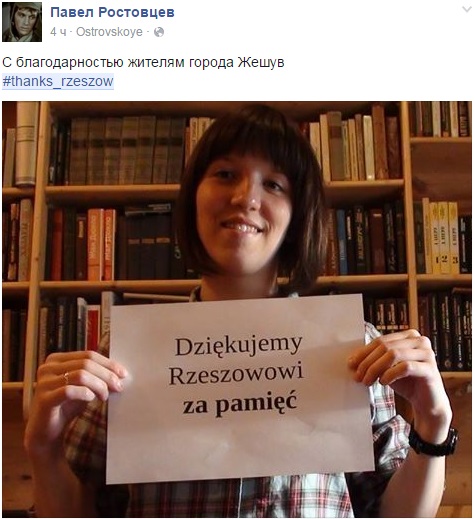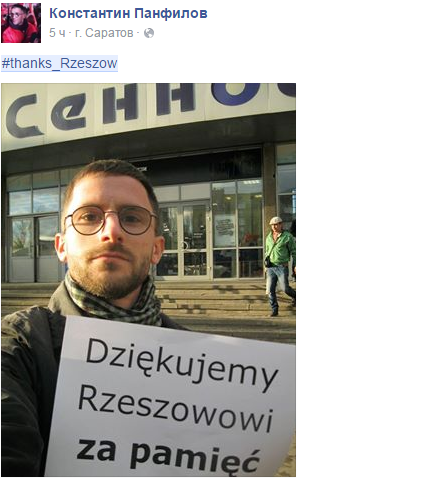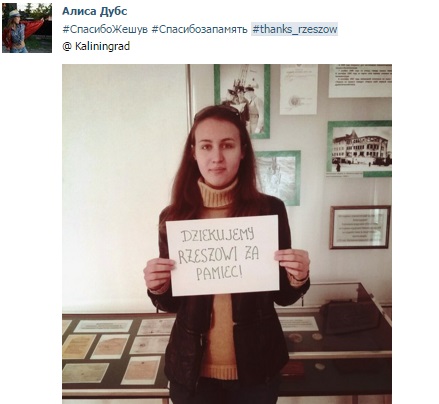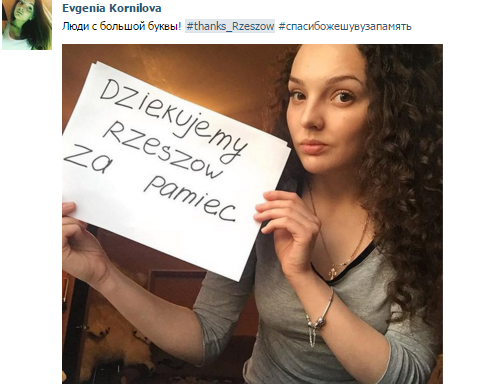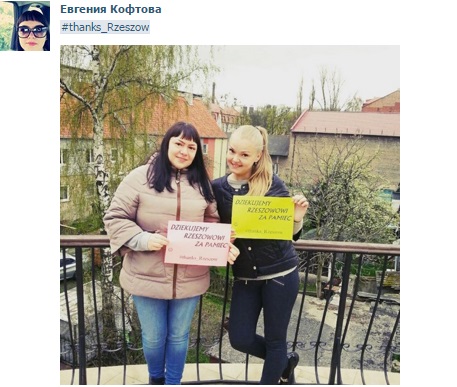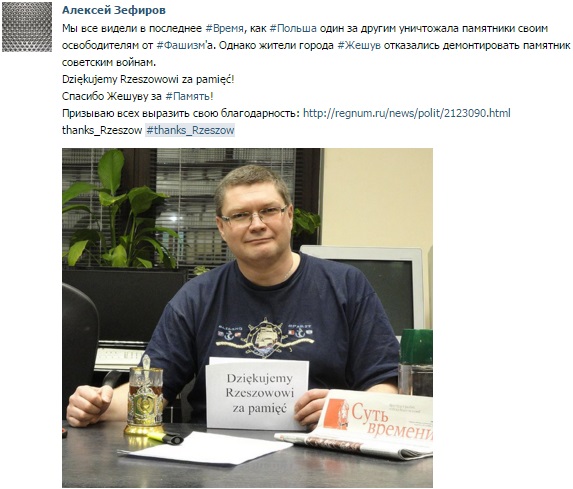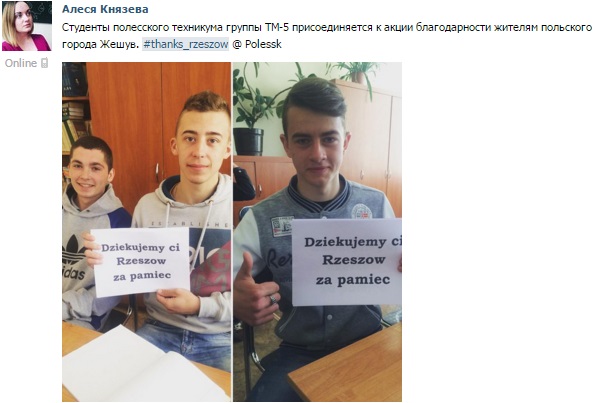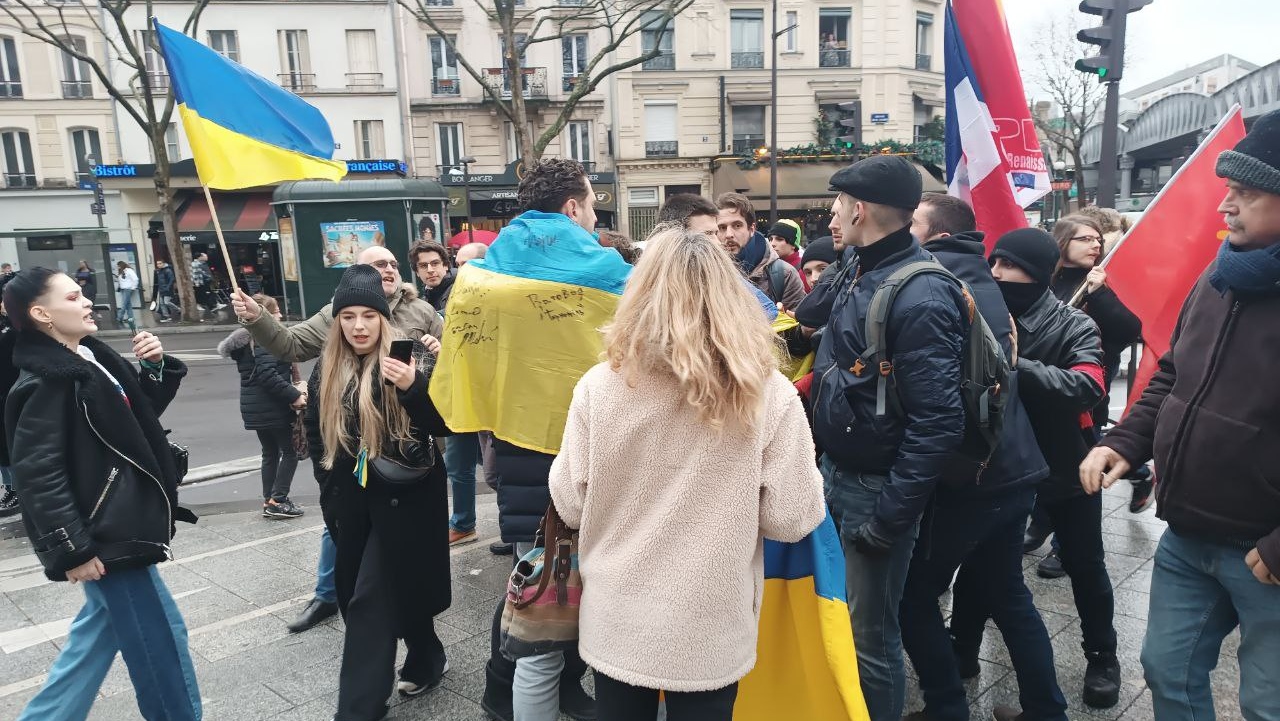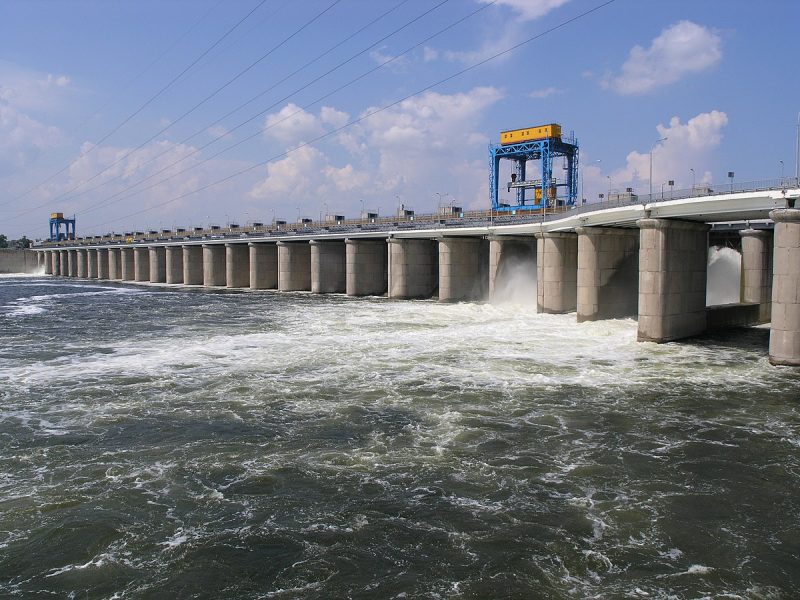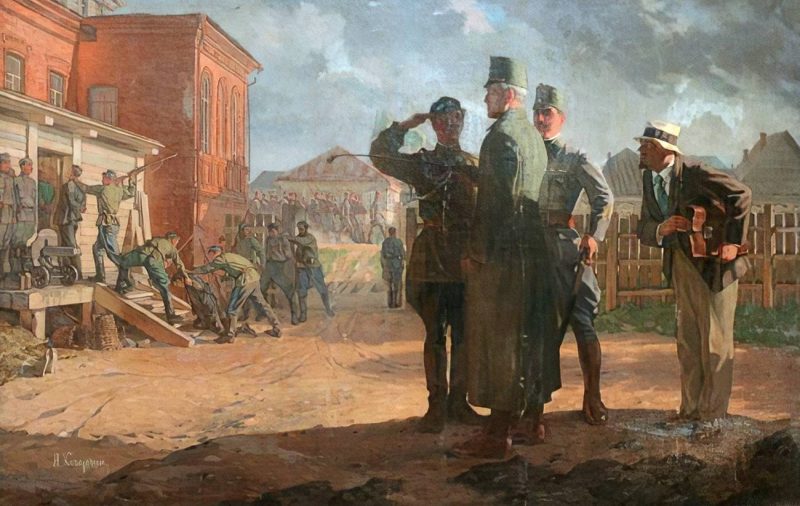25.04.2016, Poland.
Poland and Ukraine have long participated in the campaign aimed at destroying the Soviet monuments, including the monuments to the Red Army, which liberated the world from fascism in 1945. Citizens of one Polish city, Rzeszow, however, refused to comply. The residents and the authorities of this city did not allow the so-called “NGO Institute of National Remembrance” to tear down the Monument of Gratitude to the Red Army. Thousands of Soviet soldiers, according to Rzeszow, laid their lives for liberating the city from fascist occupants.
A recent poll showed that approximately 90% of residents of the city refused to allow to tear down the monument.
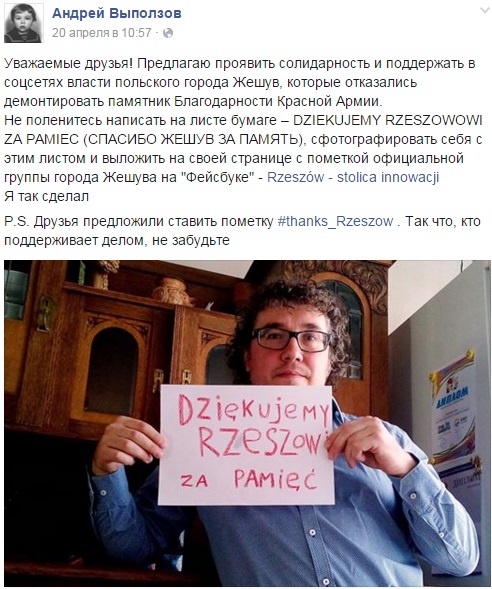
Andrey Vypolzov, a journalist in Kaliningrad, launched an online campaign to express solidarity, gratitude and support to the residents and authorities of the city, who made such a stand in these uneasy times. He urged people to write “Dziekujemy Rzesczowi za pamiec!” (Thank you, city of Rzeszow, for remembering!) on paper and make a photo of themselves with this sign. He proposed to publish this photo on your personal Facebook page and tag the official group of Rzeszow in Facebook: Rzeszów — stolica innowacji. He also launched a tag #thanks_Rzeszow. The support followed.
Historical memory is truly in deficit today, and so really: Thank you, Rzeszow.
The campaign was launched in Facebook, but soon spread to Vkontakte and other social networks. Photos of children are especially significant.
The support of officials followed: the mayor of Kaliningrad, Aleksandr Yaroshuk, half-Pole, joined the campaign. So did the mayor of Moscow Sergei Sobyanin.
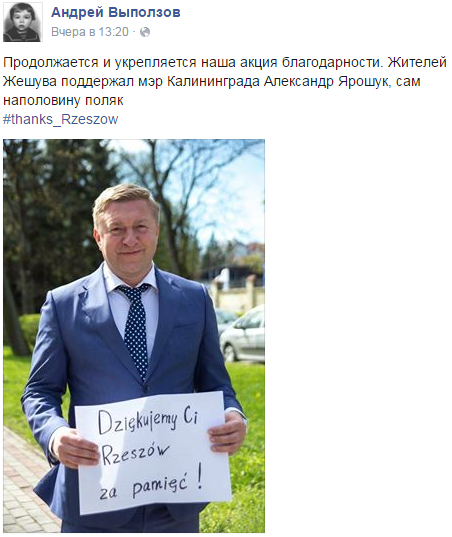
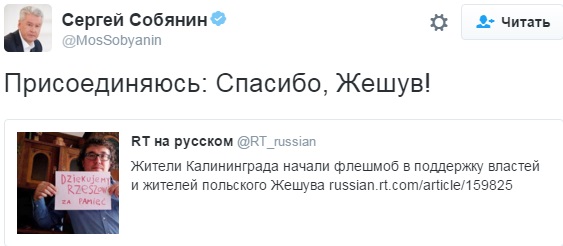
Many words of gratitude are being posted to the official page of Rzeszow administration in Facebook: http://www.facebook.com/Rzeszow.stolica.innowacji/
The authorities of another Polish city of Pieniezno, on the contrary, dismantled the monument to the twice hero of the Soviet Union, the youngest general of the army in Soviet history, who sacrificed his life liberating Poland from Nazi occupation. The authorities made this decision themselves, without looking back at the opinion of local residents.
Another Polish city, Legnica, currently also opposes the attempts to tear down the monument to Soviet soldiers who liberated the city, and Poland itself, from fascists.
Looking at these pictures, we must admit that the memory of the Great Patriotic war is both very personal and very collective, uniting the people of the formed Soviet Union. Our living and kind people.

